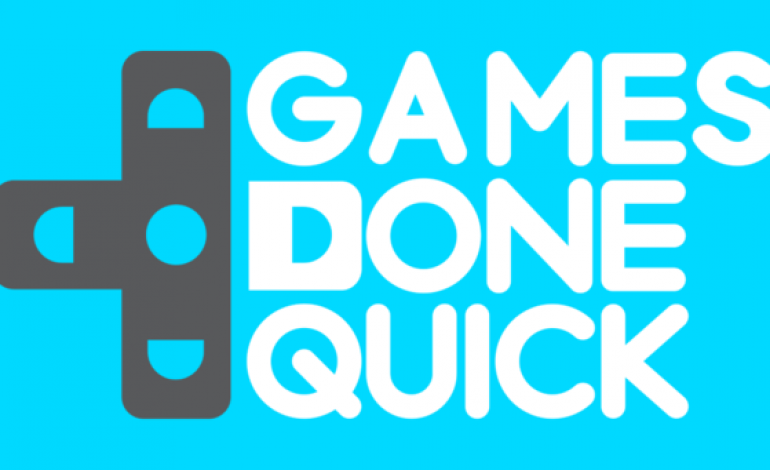

According to Uncle Mimic in Shantae and the Pirate’s Curse, there are four types of heroes in this world: those who complete their quests with minimum effort; those who are slow, yet thorough, collecting every single treasure; those who work quickly, measuring their success only in speed; and finally, those heroes who collect everything and still do it at top speed. While most gamers don’t neatly slot into the latter two categories, a home does exist for speedrunners in the form of the bi-annual Games Done Quick (GDQ) marathons. Gamers from around the United States – and sometimes even beyond – gather at GDQs to complete games as quickly as they can, all while raising money for humanitarian aid organization Médecins Sans Frontières (Doctors Without Borders). The beginning of the year variant, Awesome Games Done Quick (AGDQ), begins tomorrow.
Speed Demos Archive has hosted GDQs since 2010, and have become a fixture of the year for many gamers around the world. For the uninitiated, here’s a rundown of what a GDQ is all about:
Games Done Quick marathons entail a week-long fundraising event for a given charity (usually Doctors Without Borders). For 120 straight hours, gamers from around the country will play a video game of their choosing on stream. They’ll aim to complete the game as quickly as possible by using various methods to cut down their time, which can involve anything from manipulating the game’s AI (without using an external hack, of course), to masterful movement in digital space.
There’s no limit on what games you can run at a GDQ. Each game typically has just one runner at a GDQ, though some runners will choose to race one another in their chosen game. Every runner gets to enjoy his or her time in the spotlight; no run is performed off-stream. Off-camera commentators provide color for each run, as well as explanations of the techniques being performed on-screen. Often, the runner themselves will provide commentary.
At any point during these runs, viewers can donate money to the charity by clicking a button with the Doctors Without Borders logo on it below the stream itself. Many games have donation incentives as well. These incentives can range from naming a character in an RPG to making the speedrunner perform additional challenges in his or her run. In some cases, a game will have a bid war before its run. Viewers can donate to one of several run categories, character names, colors, or other game qualities for a specific game. The option that receives the most donations will then be carried out once the game is run.
For a full list of incentives and prizes, you can visit this page. You can also visit this page for an FAQ.
~
To many gamers, GDQs are a meeting of minds and spirits. It represents a gathering of some of the community’s most talented individuals, who have come together to display their mastery of digital space. Moreover, speedrun marathons demonstrate a sharing of knowledge with the gaming community, as well as avenues for sharing emotions and reactions to the games themselves. We are mercy to the whims of video games, after all, who sometimes seem to have a life of their own. The amount of times the phrase “That wasn’t supposed to happen” is uttered at a GDQ is testimony to that fact.
Ultimately, GDQs offer speedrunners and viewers opportunities for constructing new narratives together through the shared medium of the video game. It is this quality of the GDQs, bolstered by the chance to support charity, that draws viewers back time and time again.
You can view the stream here, starting tomorrow at 8:30 AM PST (the chat is already abuzz with conversation). For a schedule of the event tuned to your local timezone, as well as a list of featured games, you can visit this page. Don’t see your favorite game on the list? There’s always Summer Games Done Quick (SGDQ) this Summer! Or you can begin practicing your favorite game and submit it for approval for SGDQ. There’s sure to be someone on the Speed Demos Archive Forums who can help you learn the game.
And if not, then you can learn together. After all, partnering up with another speedrunner and learning how to break a game is one of the joys of speedrunning. Frustration and tears of failed runs aside, that is.
Play games, take surveys and take advantage of special offers to help support mxdwn.
Every dollar helps keep the content you love coming every single day.
